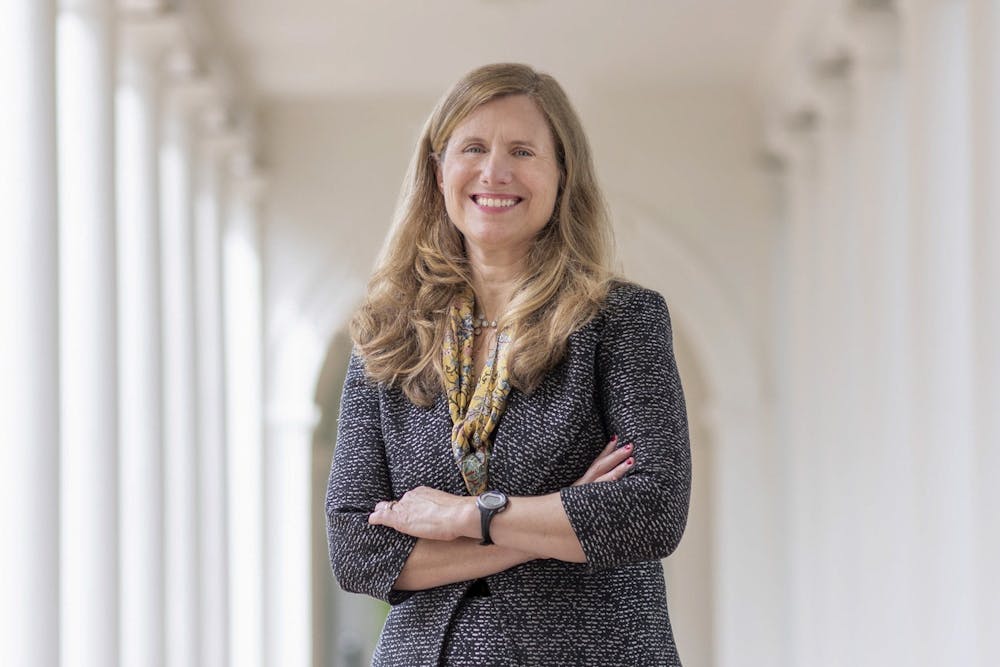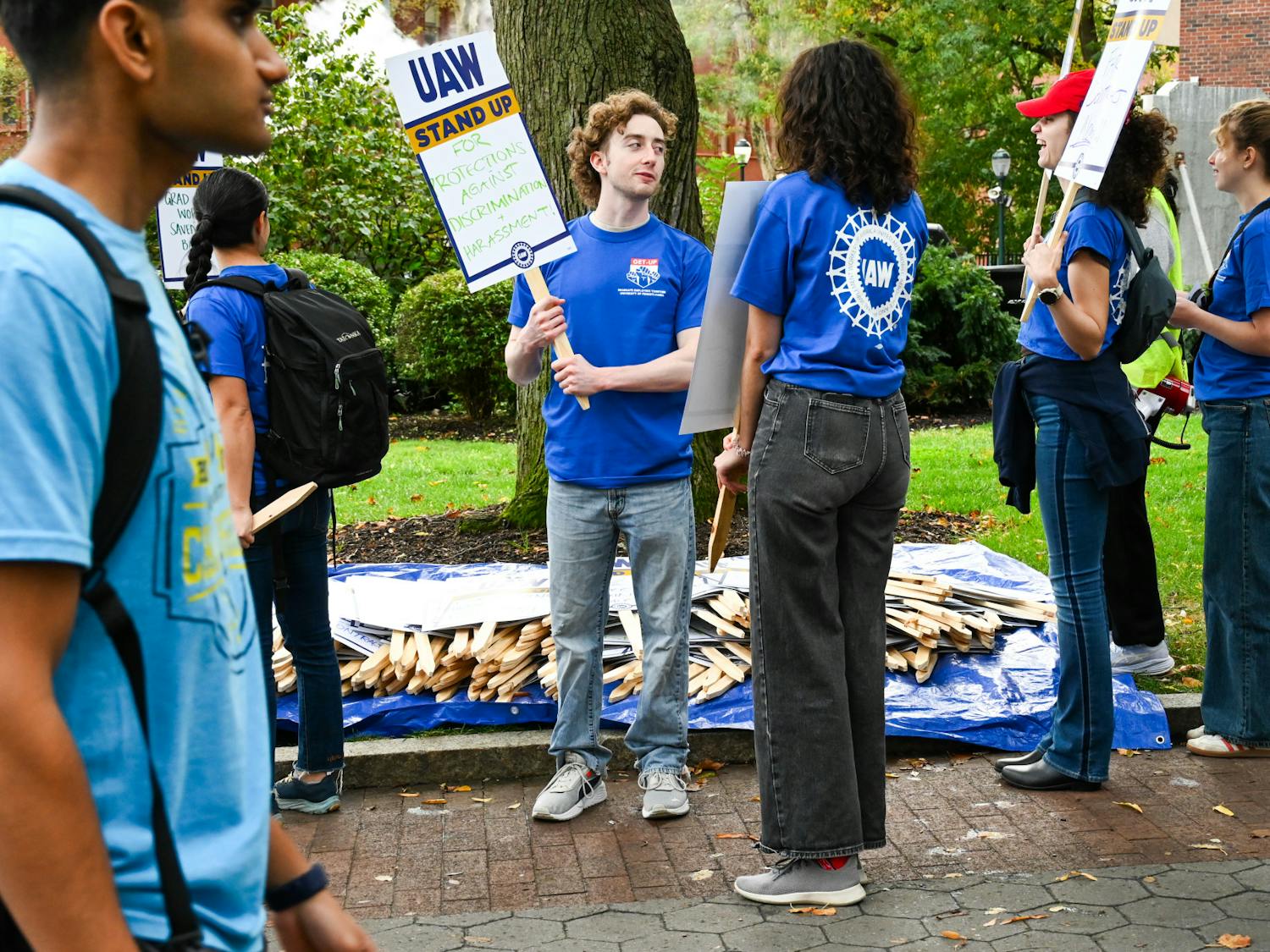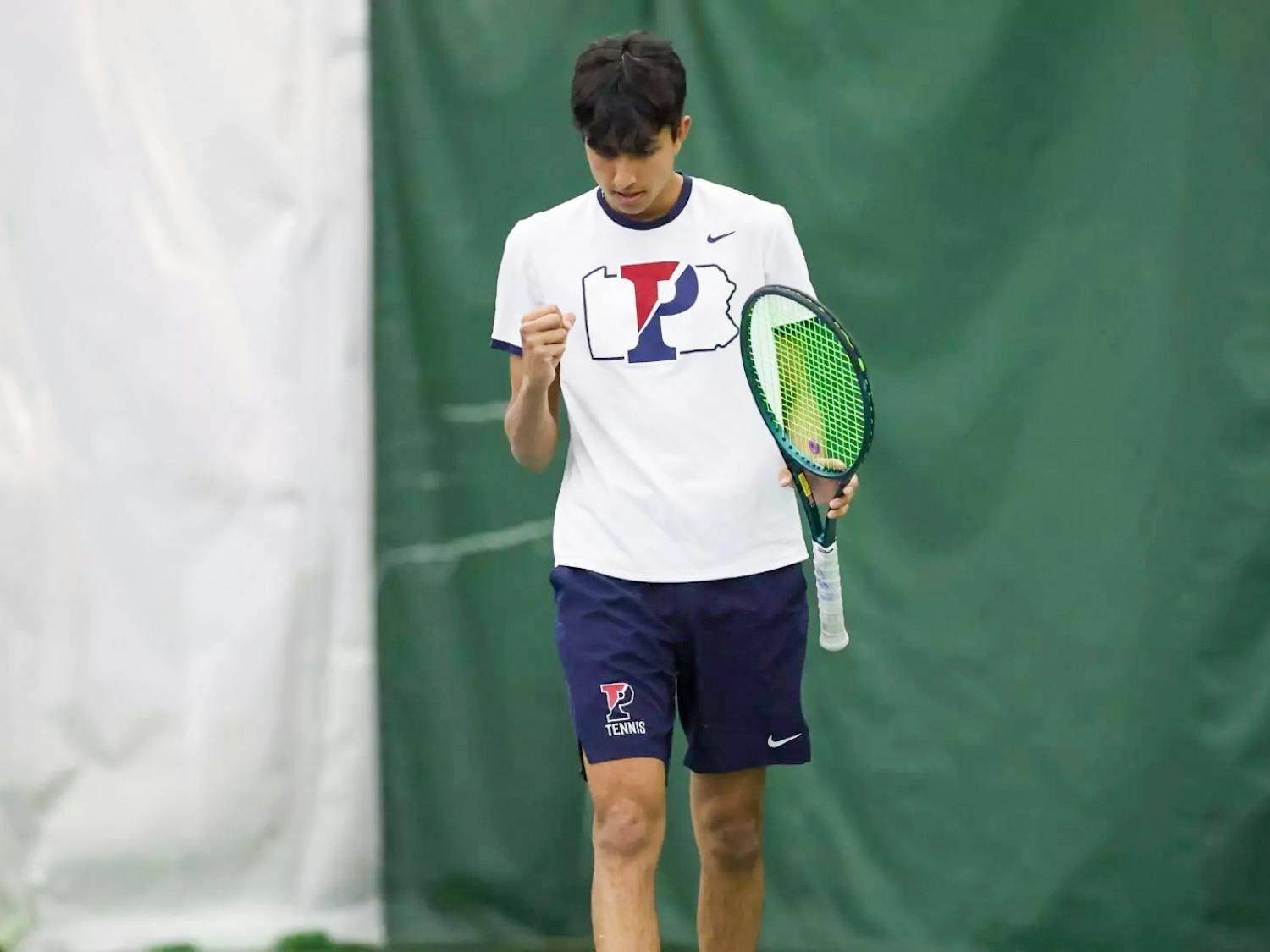After serving as University of Virginia provost, Stanford Law School dean, and a law clerk to Ruth Bader Ginsberg, M. Elizabeth Magill is set to become Penn’s ninth president.
In a wide-ranging interview — covering topics spanning from Penn Medicine and University fundraising to fly fishing — Magill spoke exclusively to The Daily Pennsylvanian and a reporter for The Philadelphia Inquirer via Zoom after the announcement.
Here’s what she said:
Question: Congratulations on your new appointment. How did this opportunity first get on your radar, and why did you want to come to Penn in the first place?
Answer: I have admired Penn, like I think most of the world, for a very long time. I don't have a degree from Penn and that's my personal failing. I have many colleagues and friends who went to, teach, or work at Penn, and they have always sung its praises. I have been a huge fan of the city of Philadelphia as well, partly for my connection to those individuals. I was living in Washington, D.C. when my closest friends were getting their Ph.D.s at Penn and I spent a lot of time in Philly at that time.
So when the search committee reached out to me and asked me if I was interested, I said I definitely was.
You can’t time these extraordinary opportunities. The process of learning much more about Penn over the course of the search, both spending time with members of the committee and then learning myself about the institution — just every bit of learning — has deepened my admiration and honestly my awe of the institution from its beginning.
Question: What is one thing you'd want students to know about you as you prepare to take on this new role?
RELATED:
M. Elizabeth Magill to become Penn's ninth president, succeeding Amy Gutmann
Senate committee confirms Penn President Amy Gutmann’s ambassador nomination to Germany
Answer: To me, students are the lifeblood of an academic institution, in the sense that students are heavily responsible for a unique feature of universities, which is that they continuously renew themselves. I know that Penn thinks really hard about who it would like to join the community, spends a lot of time on that process, and then spends a lot of time convincing people to join this institution. And that's because students are going to contribute so much to what Penn is and what it can be.
And I have always told everyone that if I am ever having a bad day when I'm at an academic institution, I go find some students, I sit down with them, and I talk to them about what they're thinking about, what they're working on, and how they see the world. And I remember what is glorious and exciting and so central to any college or university’s life. So I can't wait to get to know the student population at Penn because I think they're the key to the future.
Question: One of the biggest things that President Amy Gutmann focused on during her 18-year tenure was expanding and growing Penn Medicine. How do you plan to interact with Penn Medicine and continue that growth?
Answer: I think anyone understanding the promise of Penn Medicine will want to spend a lot of time with Penn Medicine and I will and I look forward to meeting [Executive Vice President for the Health System Larry] Jameson in the next couple of days.
Penn Medicine is a very large part of who Penn is both from a financial perspective and a research, teaching, and patient care perspective. As an academic leader, looking across the country, Penn is a model of how you can have an academic health system integrated with a great university.
Many issues in health and medicine are deeply connected to issues of social policy, the environment, business, and finance, so to be able to have the connections that Penn has in Penn Medicine and the rest of the University is a huge gift. So I will be spending a lot of time at Penn Medicine, I assure you, I just can't tell you exactly how right now.
Question: Another hallmark of President Gutmann's time at Penn is her incredibly successful fundraiser. How do you plan to continue that legacy in your time at Penn?
Answer: I am certain that the generous support of people who are willing to part with some of their resources to support Penn is essential. It's essential to the future of all of higher education in the United States today.
The first and most important thing for any academic leader is to understand the significance of fundraising and to love fundraising. I know that sounds odd. But what fundraising is really all about is connecting with people who almost always have a great love and belief in the institution and a passion for one part of it or another.
So really, in a way, philanthropy is about a human connection between two people who have a passion for an institution and a belief that it can change the world and finding the connection between the two sets of interests. It will be absolutely be a top priority of mine.
Question: What ideas might you have for getting involved with the West Philadelphia community?
Answer: Penn's connection to the community is one of the things that many, many people admire about Penn, including me. It has expressed a belief for a long time that its connection to the city of Philadelphia is essential to who it is as an institution and being a partner. And so I hope to continue and deepen that connection.
Question: On a more fun note, do you have any hobbies or things you enjoy doing with your family?
Answer: I am a fly fisherwoman. Our family spent the very short break we had this year out west in Montana spending time in Yellowstone. I hesitate to say I am really a fly fisherwoman, as I am married to a very serious fly fisherman — my husband, Leon. He puts me to shame in skill, but perhaps not in passion and affection.
We like hiking and we love the outdoors. Our family has spent a lot of time in the Blue Ridge Mountains and I very much view the geography to be home. I was running when I went out to Stanford, but I have to confess that my joints have become ever-so-slightly creakier. So I took up kickboxing when I was at Stanford and I have continued to enjoy it.
Note: Some quotes have been edited for clarity and brevity.









